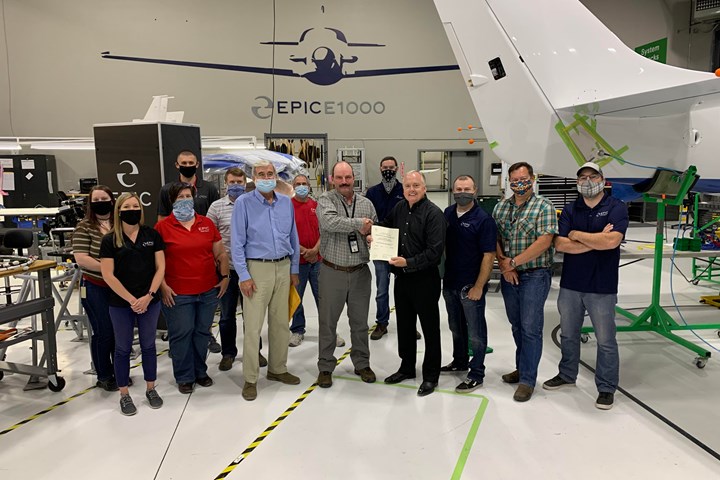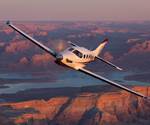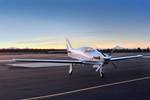Epic receives FAA Production Certificate for carbon fiber E1000 aircraft
In light of the pandemic, the FAA and Epic devised new processes to complete the required reviews and audits prior to the final on-site assessment.

Source | Epic Aircraft
Epic Aircraft (Bend, Oreg., U.S.) announced on July 23 that it has received an FAA Production Certificate (PC) for its E1000 all-carbon fiber, six-seat, single-engine turboprop. Following the aircraft’s first completed deliveries in May, the PC enables Epic to accelerate aircraft deliveries via manufacture, flight test and issue airworthiness certificates with reduced FAA presence.
“Achieving FAA Production Certificate is a tremendous milestone,” says Epic CEO, Doug King. “It is a rigorous process involving the approval of a vast number of documents, processes and systems, with composites adding additional complexity. This approval validates the efforts of our team and the investments we have made toward the aircraft.”
The company’s pursuit of FAA Production Certification started years ago, in tandem with its Type Certification program, which concluded in November 2019. Epic says it was poised several months ago to complete the FAA Production Audit, a precursor to Production Certificate, when the COVID-19 pandemic disrupted plans.
FAA-mandated travel limitations restricted on-site visits, which are typically essential to the PC approval process. In response, the FAA and Epic collaborated to devise new processes, using remote technologies to conduct the required series of reviews and audits, prior to the final on-site assessment. The company has completed three customer aircraft deliveries so far this year, with plans to now further accelerate production schedules.
Related Content
-
Cryo-compressed hydrogen, the best solution for storage and refueling stations?
Cryomotive’s CRYOGAS solution claims the highest storage density, lowest refueling cost and widest operating range without H2 losses while using one-fifth the carbon fiber required in compressed gas tanks.
-
Jeep all-composite roof receivers achieve steel performance at low mass
Ultrashort carbon fiber/PPA replaces steel on rooftop brackets to hold Jeep soft tops, hardtops.
-
Composites manufacturing for general aviation aircraft
General aviation, certified and experimental, has increasingly embraced composites over the decades, a path further driven by leveraged innovation in materials and processes and the evolving AAM market.












